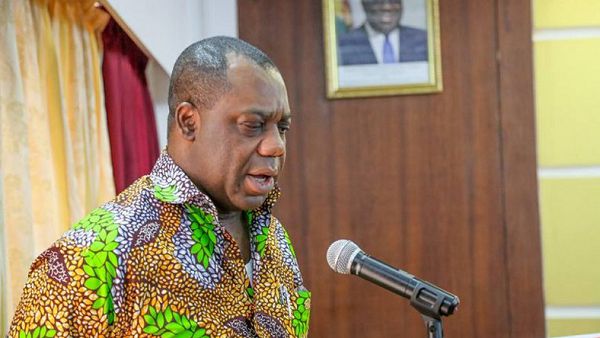
Govt rolls out more programmes under TVET project
The government has rolled out more programmes in skills training under the second phase of the Ghana Technical, Vocational Education and Training Voucher Project (GTVP).
With the inception of the second phase of the project, which started on November 1, 2018 and ends in October 2021, five new trade areas have been added, namely block-laying, tiling, plumbing, catering, electrical and woodwork, with apprentices under the second phase currently enjoying an allowance for meals and transportation.
Launching the Eastern Regional version of the GTVP, during a visit to the region, the Deputy Minister of Education in charge of Technical, Vocational Education and Training (TVET), Ms Gifty Twum Ampofo, said the government was implementing measures to enhance TVET education and facilitate the acquisition of employable skills by the youth in the country.
She said measures that had been implemented so far included the moving of all TVET institutions under the supervision of the Ministry of Education, with the task to streamline their curricula and improve the co-ordination of their training.
She explained that Cabinet had also approved a five-year strategic plan for the development of TVET, and that measures were in place to construct 21 modern TVET institutions and upgrade 35 existing ones.
Ms Twum Ampofo launched the Ghana TVET Voucher Project in the Eastern Region at the Koforidua Technical University (KTU), after visiting some senior high schools in the region to monitor the progress of the ongoing West African Senior High School Examination (WASSCE).
Project
Started in September, 2017, the Ghana TVET Voucher Project (GTVP) is a project under the Ghanaian-German Financial Cooperation, co-financed by the Government of Ghana (GOG) and BMZ through KFW.
The first phase, operated from last year October to end in February 2020, was funded with a 10 Million Euros grant from KfW and a counterpart contribution of one million Euros from GOG.
The phase two is being funded with a 10 million Euros grant from KfW and counterpart funds of one million Euros from GOG.
The project, which seeks to improve access of 16,000 master craftspersons, their workers and apprentices to further technical and vocation education and training, is being implemented by the Council for Technical and Vocational Education and Training (COTVET) with consultancy services provided by PLANCO, an international firm.
It also seeks to strengthen stakeholders in TVET, such as training institutes, trade associations and the regulatory body (COTVET) and establish a consistent incentive system for vocational training.
The project, as of the end of March 2019, has benefited 5,000 people in the four regions, 454 beneficiaries have completed training and fully verified by the Technical Examination Unit (TEU), while 1,800 are currently undergoing verification and are due to be certified by the second quarter of 2019.
TVET service
Ms Twum Ampofo said the establishment of a TVET service and TVET Councils come with a division of the education service dedicated to the management of technical and vocational education, with its own director.
She added that some technical universities had been equipped with the state-of-the-art laboratories to run engineering programmes.
The project is currently being implemented in the Greater Accra, Volta, Northern and Ashanti regions, with three additional regions: Eastern, Western and Central being rolled onto the project.
She said under the project, beneficiaries would receive competency-based training, which consisted of institutional training by formal training institutions and workplace training under the supervision of a registered Informal Sector Training Provider.
Training
The Executive Director, COTVET, Dr Fred Kyei Asamoah, said under the phase one, people were trained in cosmetology, consumer electronics, automotive repair, welding and garment.
Earlier, the deputy minister visited the Ofori Panin Senior High School (OPASS), W.B.M Zion Senior High School and Koforidua Senior High and Technical School (SECTECH) to encourage candidates writing the ongoing WASSCE, to work hard to emerge victorious in their examination, since the examination formed part of the genesis of their academic life.
She advised the students to “do independent work so that at the end of the day your results will prove your worth.”
